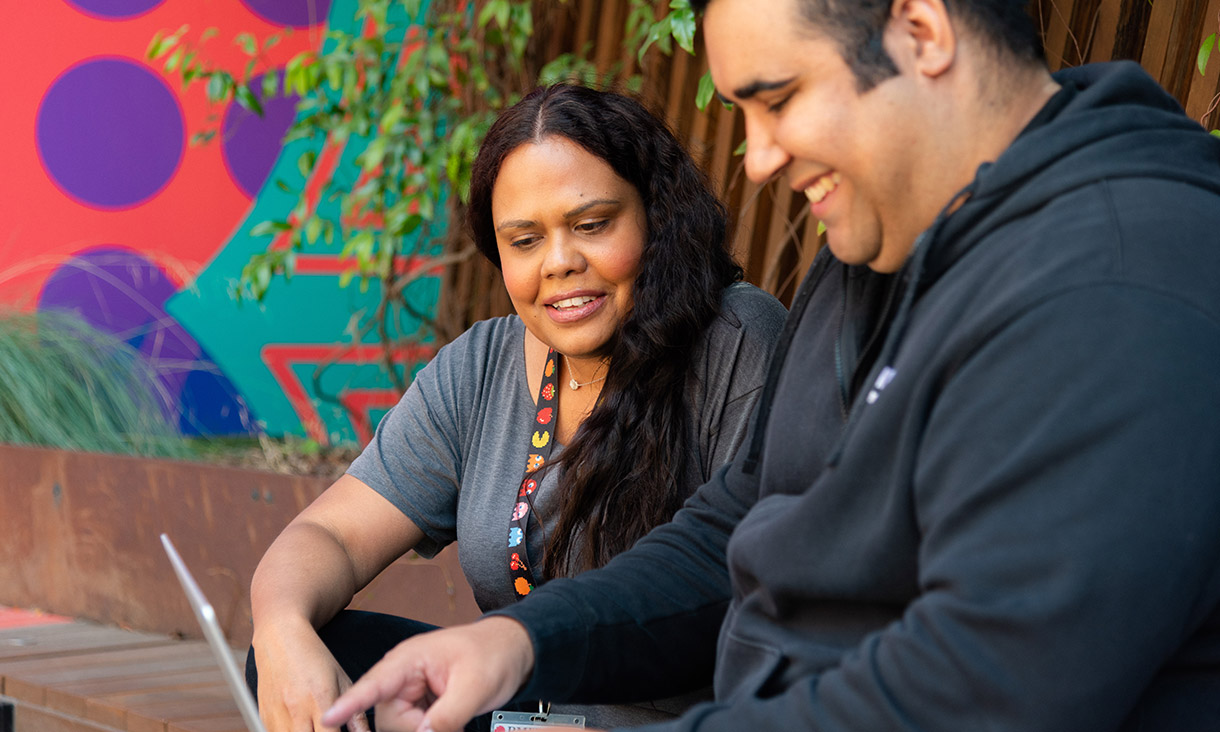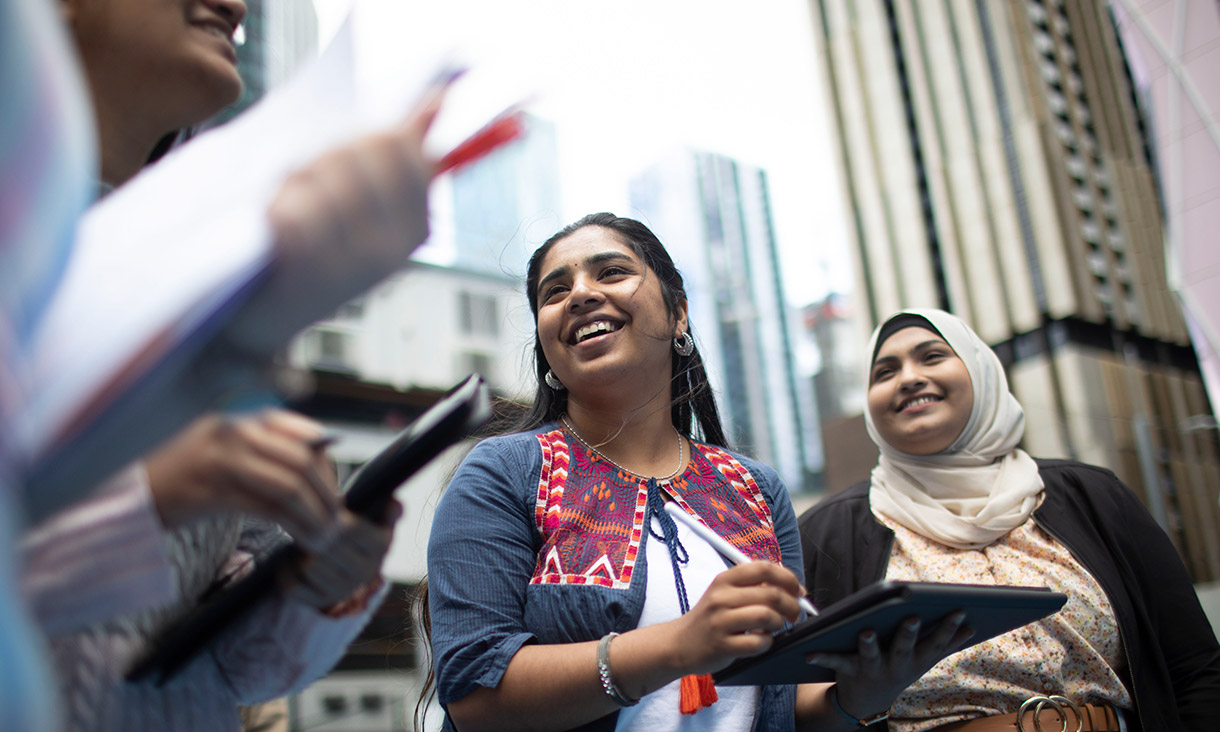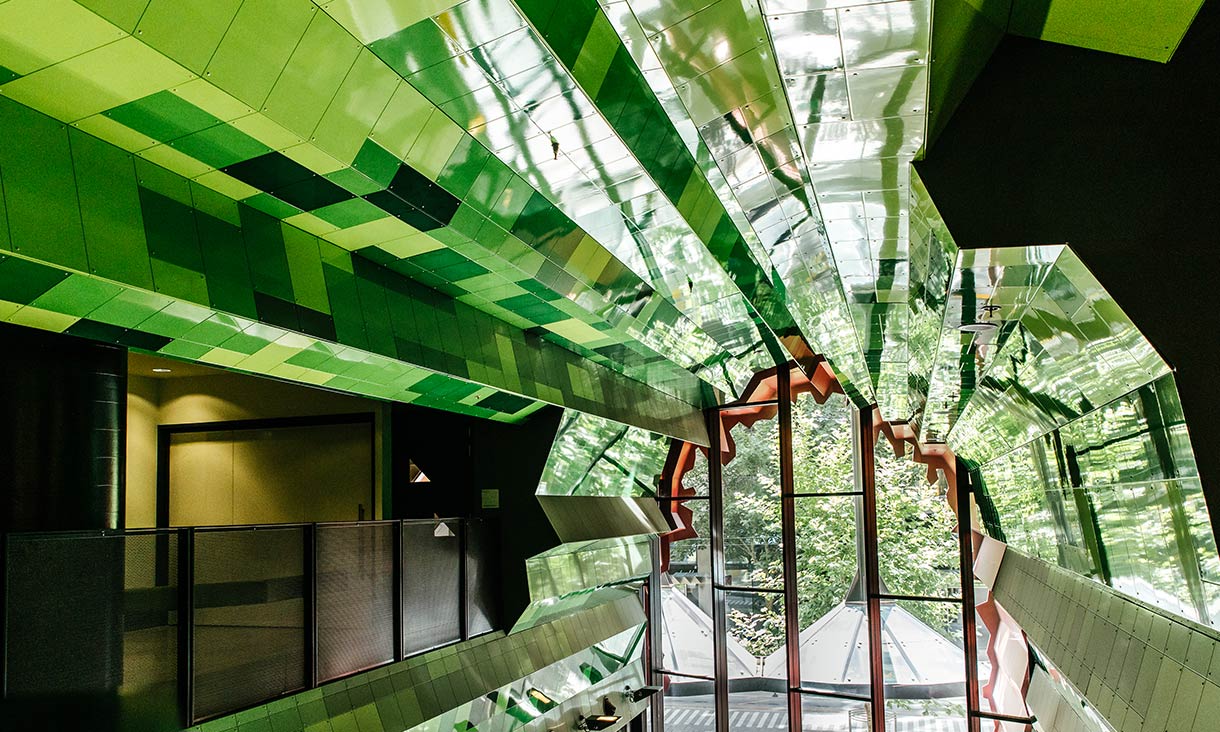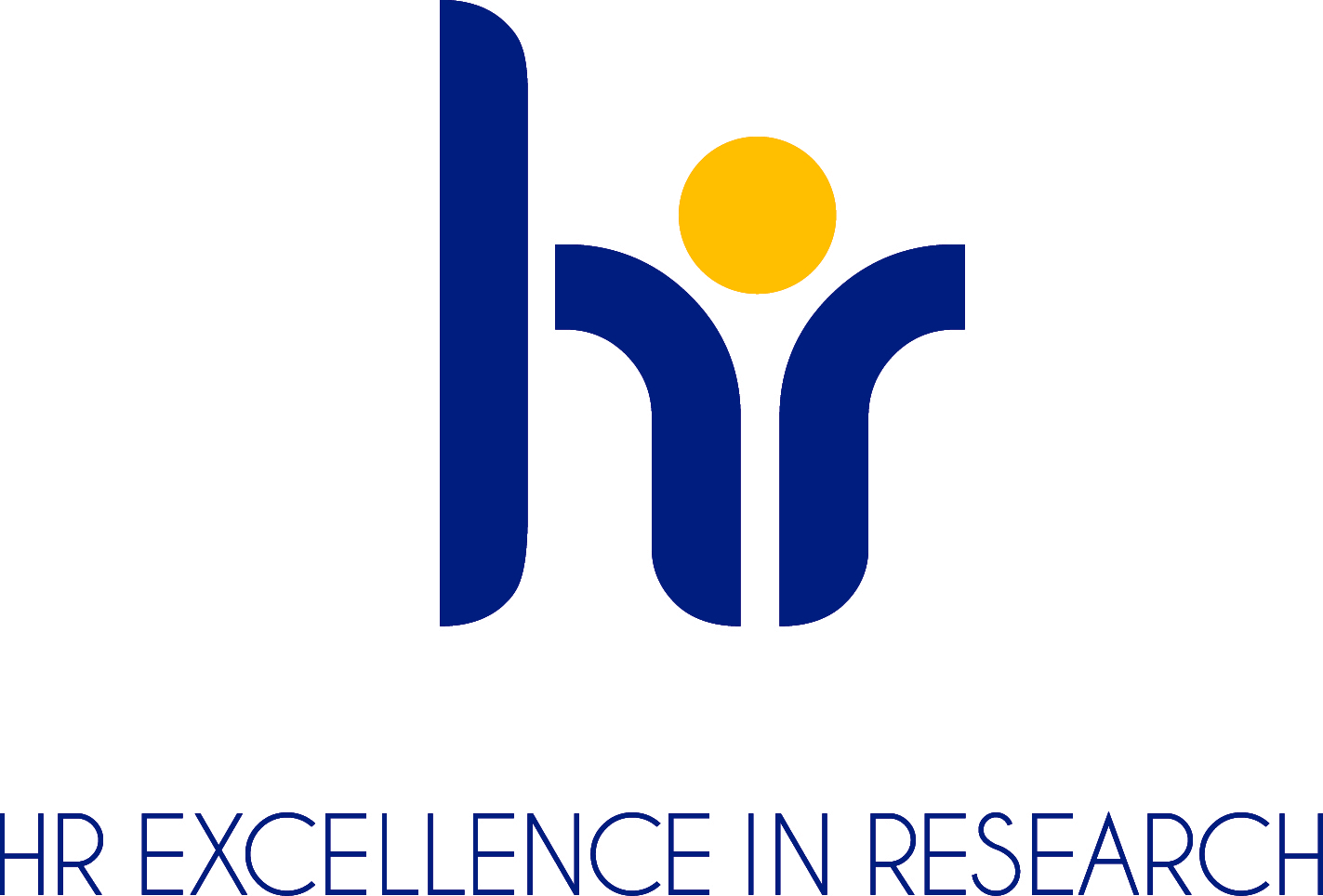The RMIT Vice-Chancellor's Research Fellowships Program
Great minds. Real world impact.

For this round, our focus is on building transdisciplinary capability in Regenerative Futures, MedTech Innovation, and Digital Innovation. We are also expanding the program to include Vice-Chancellor's Professorial- and Principal Research Fellowships, alongside our well-established Senior-, Research-, and Postdoctoral Research Fellowships.
We live in a world that is undergoing great change and uncertainty. Over the next decade, we will live and work through the complex challenges in climate, security, inequality, health and wellbeing, technological revolutions, and emerging social movements. RMIT University is committed to work with our partners and stakeholders to find new solutions and apply transdisciplinary approaches to help society, the environment, and the economy, navigate through these complex challenges.
The RMIT Vice-Chancellor’s Research Fellowships program enables some of the world’s best research talent to flourish and make a difference in areas that matter for our future. If you are ambitious and enjoy working in team environments to achieve impact from your excellent research, we invite you to apply to become an RMIT Vice Chancellor’s Research Fellow. Applications are now open at Academic levels A-E in three focused areas of priority as follows:
Going beyond ‘sustainable’ practices to restore, renew and revitalise social, economic, and environmental systems.
Revolutionising health outcomes and health expectations through innovation in medical technologies.
Advancing world-leading and multidisciplinary digital innovation research for a prosperous and secure digital future.



RMIT’s Vice-Chancellor’s Research Fellowships are open to local and international researchers who are outstanding in their field and who meet the eligibility and selection criteria.
Vice-Chancellor’s Research Fellowships are not available to RMIT employees with current ongoing academic appointments.
Applicants must:
Additional eligibility criteria may apply. Please refer to the specific eligibility criteria under each of the Fellowship categories.
Applications close 12 noon (AEDT) on 28 November 2023.
Applications for the 2023 RMIT Vice-Chancellor's Research Fellows are now closed.

Vice-Chancellor's Senior Research Fellow in the School of Engineering.

Vice-Chancellor's Fellow in the School of Engineering.

Vice-Chancellor's Postdoctoral Research Fellow in the School of Health and Biomedical Sciences.
Email: researchfellowships@rmit.edu.au.
Please do not submit applications via this email as they will not be processed. All applications and uploads must be made through our application system, Vervoe.
Creating knowledge for application in the world is part of RMIT’s DNA. For more than a century we have led applied research, from testing of materials in the 1920s to fluid mechanics and radio communications in the 1940s and electronics in the 1970s.
Today, RMIT continues with research and innovation whose benefits go beyond academia.
We choose to excel in applying knowledge with purpose, tackle complex challenges and develop new technologies, systems, ventures and networks to create meaningful benefit for our society, economy and environment.
Bringing different views and expertise together to develop practical, sustainable and ethical solutions to great challenges in society is what drives and defines the RMIT research ecosystem.
It is an active, living network, made up of thousands of people from different professions, disciplines and time zones, collaborating intentionally.

This initiative supports the HR Excellence in Research Award, which is recognised by the European Commission for institutions that make progress in aligning their human resources policies to the European Charter for Researchers and The Code of Conduct for the Recruitment of Researchers. The standards support researchers and includes general principles on the roles, responsibilities and entitlements of researchers, employers and funders, and a commitment to the advancement of research.
Acknowledgement of Country
RMIT University acknowledges the people of the Woi wurrung and Boon wurrung language groups of the eastern Kulin Nation on whose unceded lands we conduct the business of the University. RMIT University respectfully acknowledges their Ancestors and Elders, past and present. RMIT also acknowledges the Traditional Custodians and their Ancestors of the lands and waters across Australia where we conduct our business - Artwork 'Luwaytini' by Mark Cleaver, Palawa.
Acknowledgement of Country
RMIT University acknowledges the people of the Woi wurrung and Boon wurrung language groups of the eastern Kulin Nation on whose unceded lands we conduct the business of the University. RMIT University respectfully acknowledges their Ancestors and Elders, past and present. RMIT also acknowledges the Traditional Custodians and their Ancestors of the lands and waters across Australia where we conduct our business.